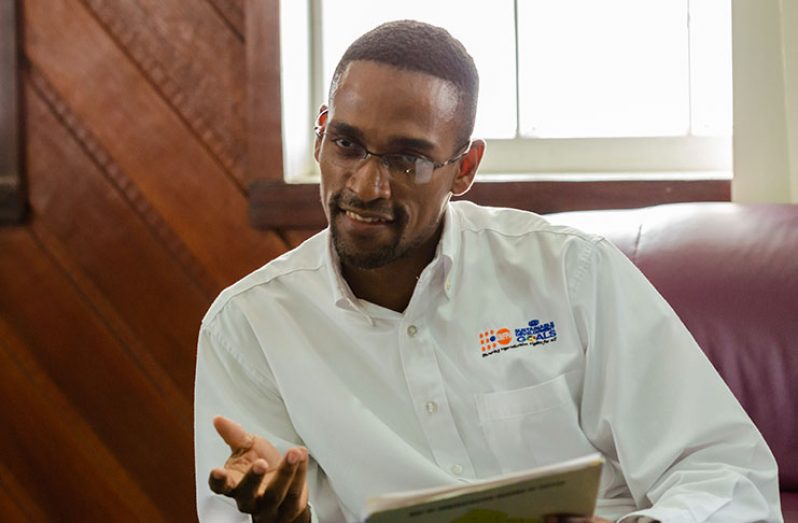– UNFPA making efforts to address
AS the crisis continues in Venezuela, and more migrants continue to pour into Guyana to find a safe space, several United Nations (UN) agencies are working diligently to address their needs.
However, efforts to tackle the issue of vulnerability, has been a challenge due to Guyana’s irregular migration system.
In an interview with the Guyana Chronicle, Liaison Officer for the United Nations Fund for Population Activities (UNFPA), Alder Bynoe, said that Guyana’s limited capacity to absorb a large inflow of migrants and refugees creates challenges for the government to manage arrivals in a safe and orderly manner and provide adequate services.
This, in turn, Bynoe said, increases the risk of migrants and refugee women and adolescents falling victims to gender-based violence, as well as other risks such as labour exploitation, child labour, and other violations of their rights.
“An insufficient number of implementing partners on the ground to address gender-based violence, in particular, survival sex, human trafficking and sexual exploitation is a-significant challenge. A large number of Venezuelan girls and women are trafficked and sexually exploited. Some others have to have exchange sex for money or food and medicines, known as ‘survival sex’,” Bynoe said.
He also shared that the United Nations High Commissioner for Refugees (UNHCR) has, through their protection monitoring, assessed that the majority of Venezuelans arriving, are women between the ages of 18 and 35, and they are travelling alone. Around 50% of the women entering through Barima-Waini, he said, were identified as women at risk of gender-based violence and other violations.
“We (UNFPA) are providing translation services, legal advice and temporary accommodation for identified victims. There should be systems in place in which a Venezuelan who is being exploited can report to the authorities and be sure that measures will be taken to address and rectify the issue. We believe that providing persons with work permits, for example, will not only go towards minimising exploitation; it will also protect Guyanese workers. Because if employers have to treat a Guyanese worker in the same way as a Venezuelan worker, they may not be so quick to hire a Venezuelan, thinking that they can pay him/her less money,” Bynoe posited.
Through a Skype conversation, Public information and Communications Officer with the UNHCR in the Washington Regional Office, Sibylla Brodzinskyin, shared with this newspaper the efforts being made to regularise the presence of the migrants in Guyana.
Brodzinskyin said that UNHCR is working with the government of Guyana to digitise the registration system, which will make the process quicker.
“Right now the process is sort of manual, so we are currently working on digitising the process, so as people arrive, they can be registered; and also the people who are already in the country. We are going to use a system that is used all over the world to register refugees,” she said.
Brodzinskyin explained that everyone who is registered in the system will obtain an ID or document that will have their name, age, photograph and other identification information, and will serve as an official identification to be in Guyana.
This, Bynoe said, will aid in reducing the migrants and refugees vulnerability to violations.
UN joint Gender-Based Violence Mission
During the period March and April, Bynoe shared that a UN joint gender-based violence mission was conducted in Regions One and Seven, with the goal of carrying out an inter-agency rapid assessment.
This assessment was done to help them understand gender-violence risks in locations visited, vulnerable population groups facing gender-based violence, and linked root causes.
The rapid assessment also captured the level of availability and access to services such as health, food, housing; legal status, and gender-based violence protection risks faced (sexual abuse, survival sex and other forms of sexual violence), among others.
“The assessment findings will assist the concerned stakeholders in enhancing coordination, intervention planning and programming, ensuring a well-functioning gender-based violence inter-agency coordination mechanism, that promotes the highest standards of its prevention and response, in line with global standards,” Bynoe said.
Though all UN agencies are carrying out individual projects, it was highlighted in the interview that it is a collaborative effort between agencies, to ensure fulfilment of the UN’s mandate to harmonise nations and protect people’s rights.



.jpg)








